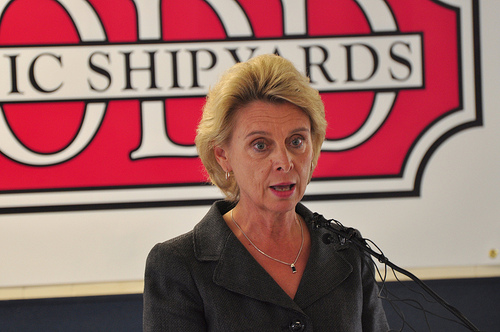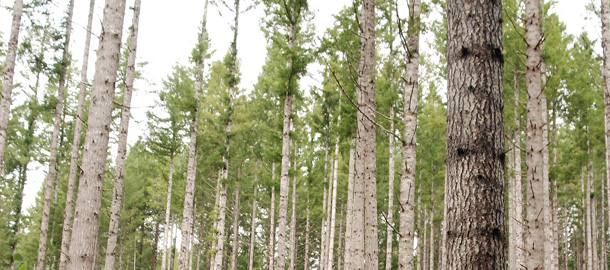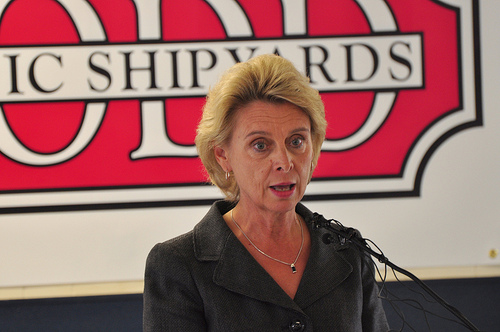Washington Gov. Christine Gregoire (D) is in Copenhagen for the last few days of the climate conference. I sat down with her for a brief interview. An edited transcript follows:
Q. The spirit of optimism is higher in my conversations with governors than with any other officials at this conference. What drives your optimism and how do you see that playing out in your state?
 Gov. Chris Gregoire is talking up America’s climate leadership this week in Copenhagen.File photo / WSDOT via Flickr
Gov. Chris Gregoire is talking up America’s climate leadership this week in Copenhagen.File photo / WSDOT via Flickr
A. Let me take you back to about 2006. President Hu Jintao [of China] visited the U.S. — came to Washington state and Washington, D.C. We had just passed some biofuel legislation; he brought it up to me and said, “I want you to know that whatever you can produce in biofuels, we would like to import.” And it was then that I thought, … “here’s an economic opportunity for us that’s second to none.”
So I was the first governor, when we set our goals for reduced emissions, to include a goal of creating “green collar jobs.” My goal was that we would create 25,000 green collar jobs by the year 2020. Within two years we are at 47,000.
 I testified before the U.S. Senate to say, in essence, “Are you missing the opportunity here? It’s not only the right and moral thing to do, it’s not only good for our health, it’s not only a counter to the terrible natural disasters that we’ve seen (a 500 year flood followed 13 months later with a 100 year flood), but it’s the economy of tomorrow. So take the Model T and put it in the garage and let’s look at the economic future: It’s an electric car and everything associated with it.”
I testified before the U.S. Senate to say, in essence, “Are you missing the opportunity here? It’s not only the right and moral thing to do, it’s not only good for our health, it’s not only a counter to the terrible natural disasters that we’ve seen (a 500 year flood followed 13 months later with a 100 year flood), but it’s the economy of tomorrow. So take the Model T and put it in the garage and let’s look at the economic future: It’s an electric car and everything associated with it.”
That’s why I’m so optimistic. And as I see all the folks from around the globe here, it’s very obvious to me [that] those states and nations that sit on the sideline and watch and wait are going to be the losers in this deal, and those who are aggressive and out front and get it are benefiting.
Q. The climate conversation has been so focused on the economic pain that it’s going to cause to people. Who’s responsible for changing that message?
A. Well over $3 billion — a large portion of our health care costs — are directly attributable to air quality and climate change related issues. We’ve had natural disasters [as a result of global warming], and the human costs and the financial costs to clean up after those national disasters have been huge. So when people say how much is it going to cost to change, I say, “How much is it going to cost to fail to change?”
There is no question in my mind, cost-benefit analysis, the failure to change will cost us far more, not just in economics, but in human lives and the tragedies that we’re seeing in these national disasters. So, again, it’s time to step up and do the right thing.
Q. What has been the high point of your experience so far at the conference and do you feel it’s been a success.
A. You know, we had a panel of governors and premiers; it was tickets only, standing room only, and so on. I made the comment that, “I know you’re wondering whether America can lead, I know you’re wondering whether America has done anything since Kyoto. I’m here to tell you we can lead, we have been, and we’ve been leading since Kyoto.”
Then [I described] what we’ve been doing in our Western Climate Initiative, and the midwestern states, and the RGGI states, all of which represents 50 percent plus of the population and the economy to make the point that don’t count America out. Obama is going to lead, we’re there, we’re ready to implement at the state and local level — so America is back in its rightful position.
Spread the news on what the føck is going on in Copenhagen with friends via email, Facebook, Twitter, or smoke signals.




